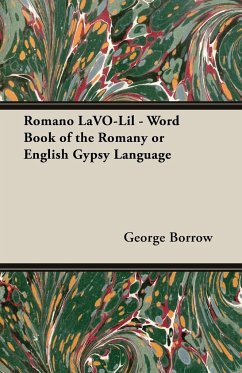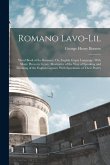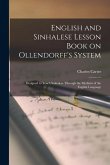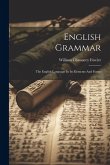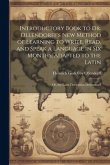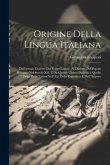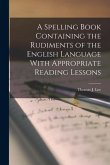Originally published in 1874. The book also contains specimens of Gypsy poetry, and an account of certain Gypsyries and of various things relating to Gypsy life in England. Contents Include: The Gypsy Language Word Book of the Romany Gypsy verbs Little Sayings The Lord's Prayer in Gypsy Dialect Book of Wisdom of the Egyptians Gypsy names of Countries and Towns English Gypsy Songs Foreign Gypsy Songs The English Gypsies Gypsy names Fortune Telling Metropolitan Gypsies Famous Gypsies. Etc
Hinweis: Dieser Artikel kann nur an eine deutsche Lieferadresse ausgeliefert werden.
Hinweis: Dieser Artikel kann nur an eine deutsche Lieferadresse ausgeliefert werden.

